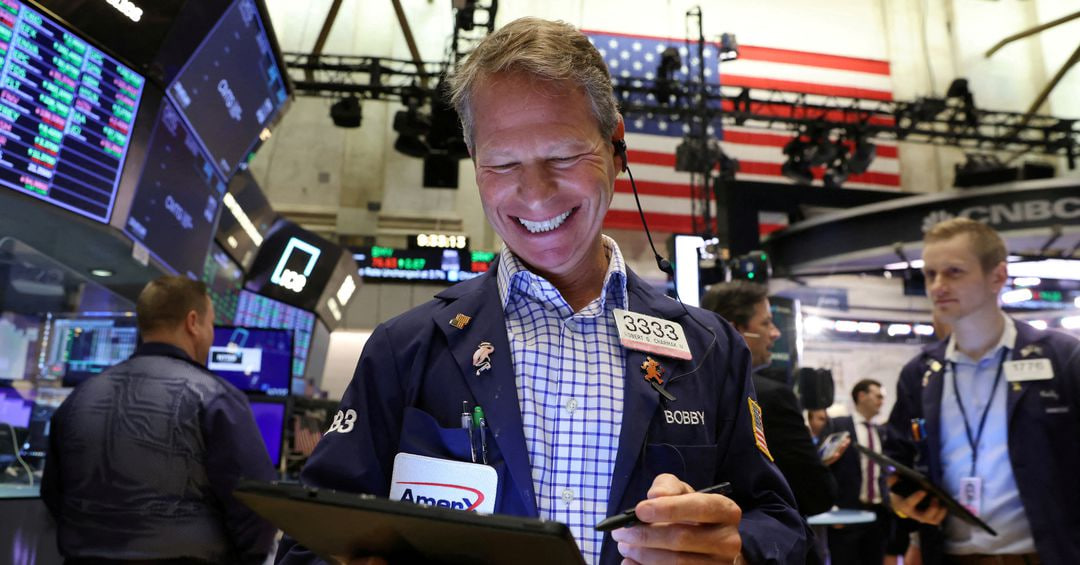OpenAI's Strategic Hire: Scott Schools as Chief Compliance Officer – Navigating the AI Ethics Minefield
Meta Description: OpenAI's appointment of Scott Schools as Chief Compliance Officer signals a proactive approach to AI ethics and regulation. This in-depth analysis explores the implications of this crucial hire, examining Schools' background, the challenges facing OpenAI, and the future of AI governance. Keywords: OpenAI, Scott Schools, Chief Compliance Officer, AI Ethics, AI Regulation, Compliance, Artificial Intelligence, Governance, Technology Ethics.
Imagine a world brimming with artificial intelligence, a world where AI-powered tools seamlessly weave into the fabric of daily life. Exciting, right? But this futuristic landscape also presents a complex web of ethical and regulatory challenges. Think about it: autonomous vehicles making life-or-death decisions, algorithms potentially perpetuating societal biases, the ever-present risk of data breaches impacting millions. This isn't science fiction; it's the reality we face today. And that's why OpenAI's recent appointment of Scott Schools as Chief Compliance Officer is such a significant development. It's a bold move, a clear signal that this leading AI research company isn't just building technology; it's actively grappling with the immense responsibility that comes with it. Schools' extensive experience navigating the turbulent waters of ethical and regulatory compliance, honed during his tenure at Uber, brings a much-needed level of expertise to OpenAI's already impressive team. This isn't just about ticking boxes; it's about proactively shaping the future of AI, ensuring its responsible development and deployment benefits humanity as a whole. This article delves deep into the significance of this appointment, exploring the challenges OpenAI faces, Schools' impressive track record, and the broader implications for the future of AI governance. Get ready to unravel the complexities of AI ethics and witness firsthand why this is a game-changer in the world of artificial intelligence. We'll explore the nuances, dissect the implications, and leave no stone unturned in our journey to understanding the future of AI responsibility.
OpenAI and the Growing Importance of AI Ethics
The field of artificial intelligence is advancing at a breakneck pace. New breakthroughs are announced almost daily, pushing the boundaries of what's possible. But with this rapid progress comes a critical need for ethical considerations and robust regulatory frameworks. OpenAI, a company at the forefront of AI research and development, understands this better than most. They've been vocal advocates for responsible AI development, and the appointment of Scott Schools underscores their commitment to this crucial aspect. His role isn't merely to ensure OpenAI complies with existing regulations – although that's certainly a vital component. It's about proactively shaping the ethical landscape of AI, anticipating future challenges, and setting a standard for the industry at large. This isn't just about avoiding legal trouble; it's about building trust, fostering responsible innovation, and ensuring that AI benefits society as a whole. The stakes are incredibly high, and Schools' expertise is paramount in navigating this complex terrain.
Scott Schools: A Profile of Experience
Before joining OpenAI, Scott Schools held the position of Chief Ethics and Compliance Officer at Uber, a company that has faced its fair share of regulatory scrutiny. His experience in this high-pressure environment is invaluable. He's a seasoned professional who's adept at navigating complex legal and ethical dilemmas, managing risk, and fostering a culture of compliance within a dynamic and rapidly growing organization. Schools’ background isn't just about legal expertise; it's about understanding the human element – the ethical implications of technology on individuals and society. This holistic approach is crucial for OpenAI, which is developing technologies with far-reaching consequences. He's not just a lawyer; he's a strategic thinker, a problem-solver, and a leader who understands the importance of aligning business objectives with ethical principles.
Navigating the Regulatory Maze: Challenges Facing OpenAI
OpenAI operates in a rapidly evolving regulatory landscape. Different countries and regions have varying regulations regarding AI, making compliance a complex undertaking. Furthermore, the technology itself is constantly evolving, making it challenging to anticipate and address future challenges. Data privacy is a major concern. OpenAI deals with vast amounts of data, and ensuring its responsible handling is vital. Bias in algorithms is another significant challenge. AI systems trained on biased data can perpetuate and even amplify existing societal inequalities. OpenAI needs to mitigate these risks proactively, and Scott Schools’ role is pivotal in this effort. The potential for misuse of AI technology is also a serious concern. OpenAI must ensure its technologies aren't used for malicious purposes. This requires a multi-faceted approach, including technical safeguards, robust monitoring systems, and clear guidelines for users.
The Future of AI Governance: OpenAI Setting the Standard
OpenAI’s appointment of Scott Schools isn't just about compliance; it's about leadership. The company is setting a standard for the AI industry, demonstrating a commitment to responsible innovation. This proactive approach is crucial for building public trust and ensuring the ethical development of AI. Schools' expertise will be instrumental in shaping OpenAI's approach to AI governance, influencing not only the company's internal practices but also the broader conversation around AI ethics and regulation. His insights will likely contribute to the development of best practices and industry standards, shaping the future of AI development worldwide. Moreover, his presence strengthens OpenAI's ability to engage constructively with policymakers and regulators, ensuring that regulations are effective and proportionate.
A Deeper Dive into AI Compliance: Key Strategies
- Proactive Risk Assessment: Regularly identifying and assessing potential ethical and regulatory risks associated with OpenAI's technologies is paramount.
- Robust Data Governance: Implementing stringent data security protocols and ensuring compliance with data privacy regulations (like GDPR and CCPA) is non-negotiable.
- Algorithmic Auditing: Regularly auditing algorithms to identify and mitigate biases is crucial for fairness and equity.
- Transparency and Explainability: Making AI systems more transparent and understandable will enhance accountability and build public trust.
- Collaboration and Engagement: Working closely with policymakers, researchers, and other stakeholders to shape a responsible AI future is essential.
Frequently Asked Questions (FAQ)
- Q: What is the primary role of a Chief Compliance Officer at OpenAI?
A: The CCO at OpenAI is responsible for ensuring the company's ethical and legal compliance across all its activities, particularly in the development and deployment of AI technologies. This includes navigating complex regulations, managing risks, and fostering a culture of ethical AI development.
- Q: Why is Scott Schools' experience at Uber relevant to his role at OpenAI?
A: Uber faced numerous regulatory challenges, giving Schools extensive experience in navigating complex ethical and legal dilemmas in a rapidly evolving technological landscape. This experience is directly transferable to OpenAI's unique challenges.
- Q: What are the biggest ethical concerns surrounding AI development?
A: Major concerns include bias in algorithms, data privacy violations, misuse of AI for malicious purposes, and the potential displacement of workers due to automation.
- Q: How does OpenAI plan to address bias in its algorithms?
A: OpenAI employs various techniques, including careful data curation, rigorous testing, and algorithmic auditing, to identify and mitigate bias in its AI systems. This is an ongoing process and requires constant vigilance.
- Q: What role does transparency play in responsible AI development?
A: Transparency is crucial for building public trust and accountability. OpenAI is committed to explaining how its AI systems work and addressing concerns about their potential impact.
- Q: What is the long-term vision for AI governance at OpenAI?
A: OpenAI envisions a future where AI is developed and used responsibly, benefiting humanity as a whole. They aim to lead the industry in establishing best practices and contributing to a robust regulatory framework that promotes innovation while mitigating risks.
Conclusion
OpenAI's appointment of Scott Schools as Chief Compliance Officer represents a significant step towards establishing a responsible and ethical AI future. His expertise, coupled with OpenAI's commitment to responsible innovation, signals a proactive approach to navigating the complex ethical and regulatory challenges inherent in the AI field. This isn't just about compliance; it's about shaping the future of AI in a way that benefits humanity. The ongoing conversation around AI ethics and governance is crucial, and OpenAI, with its strategic leadership, is playing a vital role in guiding this critical dialogue towards a more responsible and equitable future for all. The journey is ongoing, but with leaders like Schools at the helm, the path towards a more ethical AI landscape is becoming clearer and more promising.



